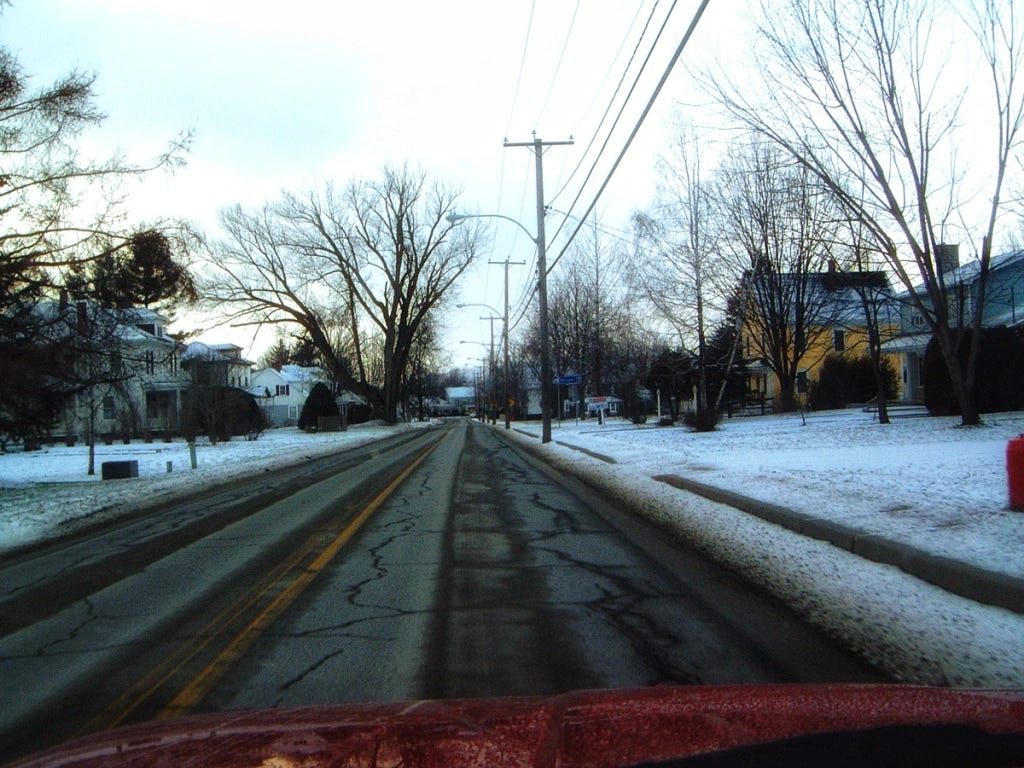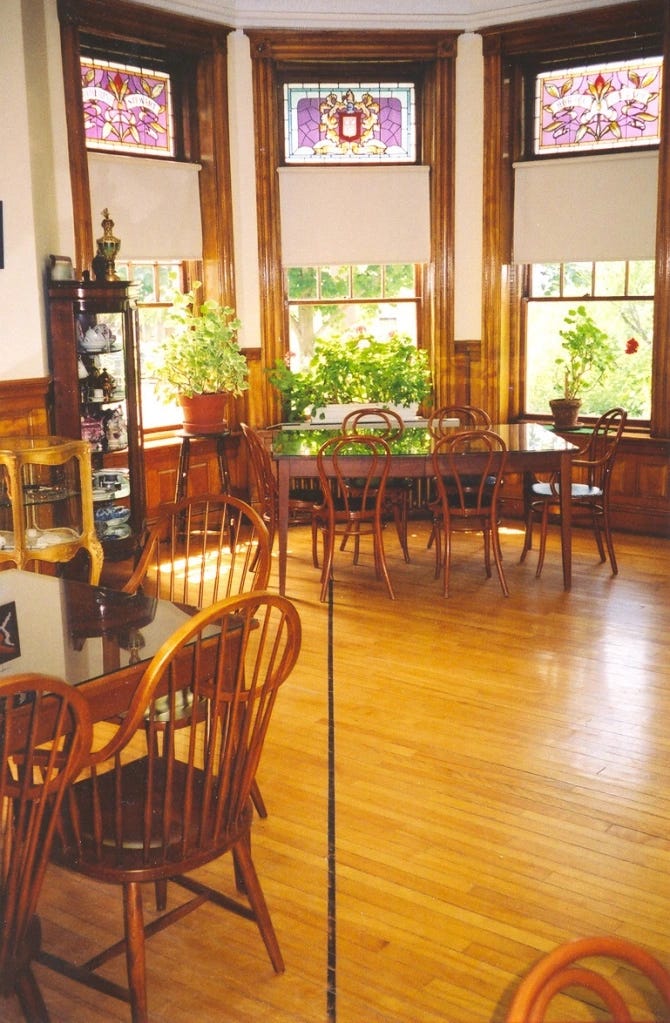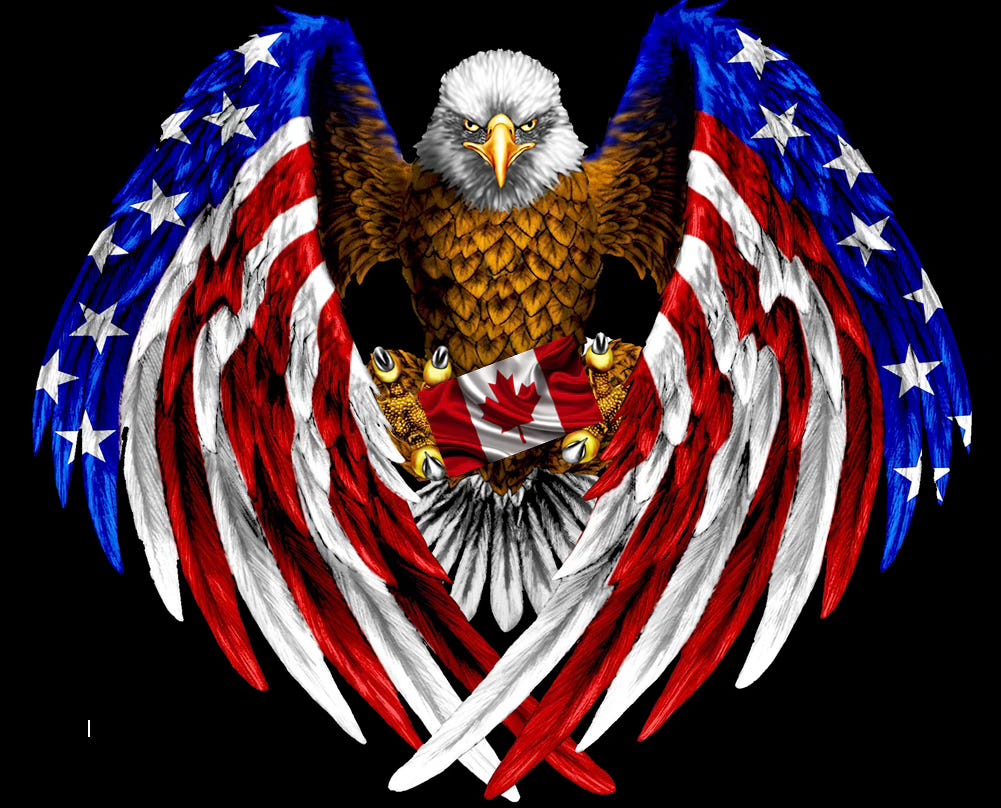Coveting thy neighbour [Part-1] - The Present
At Derby Line, the US/Canada border passes right through even some private houses. You can literally have sex in America, then go into the kitchen and make supper in Canada.
There is a tiny municipality in southern Saskatchewan named Coronach, that used to be a small wayside stop for trappers and hunters crossing over in search of game. Coronach is on the US/Canada border, its population hovering around 200 off-season. At the start of fall, when the Canadian hunting season begins, the figure would jump to 350-400.
In the early 1970s, a coal-fired power plant came up nearby and the population swelled to 1000 and has remained at around that level ever since.
The Poplar River Power Project and the adjacent coal mines have injected some life into the otherwise somnolent little town, but only slightly. Pay days see a slight increase in the hustle bustle at The Rustic Tavern, on Center Street and Sunday attendance at the Coronach Catholic Church has grown just a little.
Otherwise, ‘Snooze City’ is a more apt name for Coronach.
—————————
The US and Canada have the world’s longest undefended border and it is dotted with more than a hundred little towns like Coronach, all the way from Lake Champlain in the east to the North Cascades National Park, south of Vancouver in the west. If you are either a Canadian or an American, all you have to do is to grab your passport or Nexus Card and simply drive across.
Things are beginning to change…
For ‘obviously white’ travellers, US/Canada border crossings remain completely fuss-free. You are in and out within 15-20 minutes, no sweat, if there is no holiday rush. But if you are non-white or have a name like Mohammad or Abu Bakr or something, getting into the US will take longer and may even get dicey if you can’t converse with the US border agents satisfactorily in English or if you show “attitude”.
Then there are towns that literally straddle the border and one readily comes to mind – the American town of Derby Line(aka Beebe Plain), which is known as Stanstead on the Canadian side, situated at the border between the Canadian province of Quebec and the US state of Vermont.
The border runs right down the middle lane divider of the main thoroughfare, Canusa Street, an orangish double line you can see in the image below. If you overtake someone on Canusa Street and don’t have your passport with you, there is a good possibility you will be pulled over by a border patrol agent for unauthorized incursion. Earlier a detention for crossing the orange double line without a passport was very rare but that is changing as well.

There is even a public library that straddles the border – The Haskell Free Library and Opera House. The US-Canada border runs right through the building, dissecting the reading room floor in two. Note the black line on the floor, thats the border in the image below…

While inside the library, you can cross over the line freely, to sit and read or to access the coffee machine or go to the loo, without having to produce your passport. In the past, gun runners used this bit of freedom to smuggle handguns from the US into Canada. They would go to the loo, the guns inside a backpack and simply leave the backpack behind for the Canadian contact to walk in and walk out with the it. I understand that now bags are checked on the US side.
I swear I am not kidding about all this. It is just a glimpse of just how close Canada and the US are, as friends.
Then there is the Post Office. I remember once, we were on a weekend drive around Quebec, when we stopped at Stanstead for sandwiches. Like the Haskell Library, the Post Office too straddles the border. It has two doors and a counter for each country.
We ambled in.
Afterward, we came out the wrong door by mistake and were traversing the parking lot searching for Bertha (our Corolla) when we realized we were on the US side. We hadn’t brought our passports but our drivers licenses were sufficient. Two hefty (but courteous) American border agents appeared and walked us to our side of the border and everybody had a good laugh over it.
“Sorry we stepped in,” I said to them.
“Happens all the time. Think nothing of it. Have a great day,” said the agent.
Derby Line/Beebe Plain not only has public properties that the border dissects, the international border also passes right through some private houses, no kidding. You can literally have sex in America and then go into the kitchen, make breakfast and sit down to eat it in Canada.
————————————
If one were to draw a polygon that touches quirky border towns like Derby Line, the two oceans on either side and the northernmost reaches of the province of Nunavat, then that is what is Canada, a landmass whose staggering natural grandeur is paralleled only by it’s enormous mineral wealth.
Those upper regions of Nunavat, engulfing Baffin Bay, Hudson Bay and the maze of straits and inlets that collectively call themselves The Northwestern Passages – those 3 million square miles of Canadian territory alone are home to 15% of the world’s known untapped oil reserves and 22% of the unexploited natural gas, collectively totalling 60 BTOE (Billion Tons of Oil Equivalent).
Those are just the known reserves – serious exploration hasn’t even started yet.
The far north is not the only oil rich region of my beloved homeland. In the Canadian southwest, over millions of years, the Pacific Plate has pushed inward and slid underneath the North American Plate, causing the earth to buckle and rise high until it became the Canadian Rockies, all the while squishing at high pressure miles and miles of vegetation, turning the topsoil into bitumen that became a thick gooey mud we now call ‘tar sands’. The province of Alberta, east of the Rockies, sits on over a trillion tons of the tar sands, which in turn translate to 15 billion barrels of crude oil.
Besides oil and natural gas, the remote wilderness of the north also sits on immense deposits of other minerals, such as iron ore, copper, zinc, silver and diamonds. The world’s richest diamond mine is not in South Africa, but at Diavik, Nunavut, where one single strain churns out over 10 million carats of large, spectacularly clear, gem-quality diamonds every year.
When you leave the northern territories behind and venture south, you find massive herds of caribou grazing over barren semi-frozen land that looks deceptively empty. But take a pickaxe and drive it into the ground and a whole new world opens up before you – one that has obscenely rich deposits of nickel, vanadium and molybdenum, three metals without which the world would never have had stainless or maraging steels and cars would never have been commercially viable as a consumer product.
To the east, in Ontario, large open-cast mines are spewing out titanium – a metal that is absolutely essential to the aerospace industry. The titanium comes from ore that is 15% rich. Although in terms of reserves of the Titanium Oxide ore, Canada is 5th, the concentration of the Canadian ore is the highest.
Go further south, along the wilderness of the Cascades and the Rockies, down along the rolling prairies of Alberta, Saskatchewan and Manitoba and another land of Aladdin emerges, one that is rich in potash, gold, silver, zinc, copper and platinum and rare earths like tantalum and niobium and a host of heavy metals such as uranium, cesium, tellurium and selenium.
————————————
If there is one thing that history has taught us over and over, it is that when you live in a nation that is endowed with enormous natural wealth, you possess something which someone else may covet – especially if that someone else is a militarily powerful neighbour with a hair-trigger demagogue at it’s helm – one who has bet his fellow citizens’ lives and well-being on economics that is about to go bust under nearly $40 trillions of debt.
And if the nation you live in is a part of alliances with other nations that assure your security, like the UN Security Council, NATO or NORAD, the same history shows that alliances dissolve over time and that if you don’t plan for that day and arm yourself, you will be vulnerable.
Sounds outlandish, doesn’t it – Canada bent over, it’s shorts around its ankles, facing aggression and needing to defend itself? But then so did it sound to many Czechs, back in 1939……
“Remember that the greatest pleasure is in scattering the residents, watching their city burn to ashes and owning their women, their cattle, their sheep…” - Mongol war-lord, Genghiz Khan, in a pep-talk to his troops, before the final assault on the gates of the Genoese trade-fortress of Caffa, in Crimea (1220AD)


